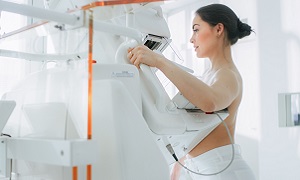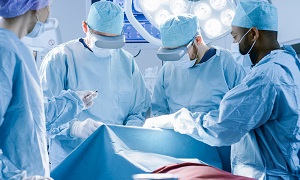Best Doctors in India for Breast Cyst Treatment
Best Hospitals in India for Breast Cyst Treatment
- City: Mumbai, India
Hospital Highlights:
- Fortis Hiranandani hospital was established in 2007.
- The hospital is an advanced tertiary care, multi-specialty hospital equipped with 149 beds.
- The hospital is equipped with a super ICU to provide emergency medical care to critically ill patients.
- The hospital is NABH accredited.
- The critical care facility in the hospital is augmented with the state-of-the-art facilities that facilitate speedier diagnosis and efficient monitoring.
- The hospital provides specialty medical services in cardiology, orthopedic science, pediatric science, neurology, diabetic care, urology, nephrology, ENT, obstetrics, gynecology, cosmetic surgery, bariatric surgery, neuro and spine care.
- City: Gurugram, India
Hospital Highlights:
- W Pratiksha Hospital, Gurugram, is one of the best hospitals in the NCR region. It is also a top hospital in India for IVF. Since its inception, the hospital has performed over 5500 successful IVFs. The hospital also specializes in gynecology.
- With over 20 years of experience in providing quality healthcare, the hospital is known as one of the most trusted and valued health providers in India.
- Equipped with world-class medical facilities and advanced technology, the hospital’s doctors and clinicians also have a track record of delivering excellent results. The hospital is also known for focusing on preventive well-being as much as on curative treatment.
- The hospital has earned the trust of its patients, by providing the best available treatments at affordable costs.
- City: Gurugram, India
Hospital Highlights:
- Paras hospital was established in 2006 and is the 250 bedded flagship hospital of Paras Healthcare.
- The is supported by a team of doctors of international and national repute.
- The hospital is NABH accredited and also the first hospital in the region to have a NABL accredited laboratory.
- The hospital provides specialty medical services in around 55 departments including Neurosciences, Joint Replacement, Mother & Child Care, Minimal Invasive Surgery, Gynecology and Obstetrics, Ophthalmology, Dermatology, Endocrinology, Rheumatology, Cosmetic and Plastic surgery.
- The hospital is equipped with state-of-the-art technologies.
- City: Kolkata, India
Hospital Highlights:
- Fortis Hospital, Anandapur, Kolkata is a world-class super-speciality equipped with the latest technologies in the medical world.
- The hospital is NABH accredited.
- This state-of-the-art facility specializes in cardiology and cardiac surgery, urology, nephrology, neurosciences, orthopaedics, digestive care, emergency care and critical care.
- The hospital, governed by integrated Building Management System (IBMS), has a pneumatic chute system, for quick vertical and horizontal transportation between floors, facilitating speedy transfer of patient specimens, documents, reports, and medicines to the concerned departments.
- The hospital also has a nephrology department with over 28 advanced dialysis units.
- City: Mumbai, India
Hospital Highlights:
- SL Raheja hospital is a 140-bed multi-specialty tertiary care hospital that is being managed by Fortis Healthcare Ltd.
- The hospital is a benchmark in healthcare and medical facilities in the neighborhood of Mahim & the western suburbs.
- L.Raheja Hospital, Mahim has one of the most effective ICU and Casualty care services.
- The hospital provides specialty medical services in Cardiology, Oncology, Neurology, Orthopedics, Mother & Child Care, and in Diabetes.
- City: Mumbai, India
Hospital Highlights:
- Wockhardt Hospitals were established in the year 1973, originally called First Hospitals and Heart Institute.
- Wockhardt Hospitals are super specialty health care networks in India, nurtured by Wockhardt Ltd, India’s 5th largest Pharmaceutical and Healthcare company.
- Wockhardt Hospitals is associated with Partners Harvard Medical International, an international arm of Harvard Medical School, USA.
- Wockhardt Heart Hospital performed India’s first endoscopic heart surgery.
- The hospital has a state-of-the-art infrastructure equipped with the latest technologies and modern equipment.
- It has special Centers of Excellence dedicated to the major specialties to provide hassle-free and high-quality clinical care.
- City: Gurugram, India
Hospital Highlights:
- The CK Birla Hospital in Gurugram is a NABH-accredited multi-specialty hospital.
- The hospital strives to increase the quality of healthcare by focusing on UK NHS nurse and midwife training requirements. Policies and practices derived from the National Institute for Health and Treatment Excellence (NICE) recommendations in the United Kingdom ensuring that a strong focus on safety, high-quality clinical care, and sanitation is maintained.
- The hospital’s cutting-edge technology and facilities allow for real-time communication and seamless collaboration among caregivers, ensuring accuracy and the best possible results. Those with foreign experience and accreditations make up part of the hospital’s team of clinicians.
- City: Ahmedabad
Hospital Highlights:
- As a member of the Apollo Hospitals Group, Apollo Hospitals International Limited, Ahmedabad is one of the most popular and sought-after medical facilities in Gujarat.
- Through its 6 Centres of Excellence and various affiliated branches, which cover all specialties and subspecialties, the hospital provides the most advanced clinical services.
- Since its inception in 2003, the hospital has been providing each patient with the most up-to-date medical equipment and state-of-the-art technology.
- With more than 150 successful organ transplants, including liver and renal transplants, the facility has been able to build a strong and extensive organ transplant program.
- In addition to performing 600 surgeries and caring for over 1800 patients on an IP basis, the hospital sees more than 18,000 patients on average in the outpatient department.
- With one of the biggest cardiology teams in the area, the hospital provides state-of-the-art regional care treatment in Cardiac Sciences.
- Additionally, the hospital offers a broad range of Neuro Interventional techniques to help stroke patients recover more quickly.
- City: Noida, India
Hospital Highlights:
- Jaypee Hospital is the flagship hospital of the Jaypee Group.
- This hospital has commissioned 525 beds in the first phase and has been planned and designed as a 1200 bedded multi-specialty facility.
- It holds the accreditation of the NABH and NABL.
- The hospital has state-of-the-art infrastructure equipped with the latest technologies and modern equipment like 64 Slice PET CT, Dual Head 6 Slice SPECT CT, Gamma Camera, and Da Vinci Robotic Surgery for comprehensive robotic surgical solutions.
- It has special Centers dedicated to the major specialties to provide hassle-free and high-quality clinical care.
- City: Mumbai, India
Hospital Highlights:
- Reliance Hospital is one of the best super-specialty care hospitals in Navi Mumbai.
- The main purpose of this hospital is to become a trustworthy place for the best health and hope for society. The hospital is well connected to the suburbs of Mumbai and Navi Mumbai.
- The hospital has various specialty departments, viz., Accident & Emergency, Anesthesiology, Dental Services, Dermatology, Diabetology, Dietetics Nutrition, Endocrinology, ENT, Gastroenterology, General Surgery, Gynaecology And Obstetrics, Hepato Pancreato Biliary Surgery, Infectious Disease, Internal Medicine, Interventional Radiology, Laboratory Medicine, Minimal Access Laparoscopic Surgery, Nephrology, Neurosciences, Opthalmology, Orthopaedics, Paediatrics, Pain Management Palliative Care, Physical Medicine Rehabilitation, Plastic And Reconstructive Surgery, Psychiatry, Pulmonary Medicine, Radiology, Rheumatology, Transplant, Urology Andrology, Vascular Surgery
BREAST CYST
Breast cysts are round or oval structures that are filled with fluid, which form inside the breast. Around one-fourth of all breast masses turn out to be cysts. However, most breast cysts are benign and therefore they don’t increase your risk of breast cancer. Breast cysts generally don’t require any treatment unless a cyst is large or painful or uncomfortable.
Cysts may occur at any age, although they are more common for women who are in their 40s. If a cyst is large enough to be felt, then it is usually round and fairly movable under the skin. Cysts might also lead to pain, tenderness, or lumpiness in the breast. The symptoms can worsen and get better at different points of the menstrual cycle.
Symptoms
Breast cysts may develop in one or both the breasts. The following can be signs and symptoms of a breast cyst:
- A smooth and easily movable round or oval lump that might be having smooth edges
- Nipple discharge that may be clear, yellow, dark brown, or straw-colored
- A decrease in the size of the breast lump and resolution of other symptoms after a period
- Breast pain or tenderness in the area of the breast lump
- An increase in breast lump size and breast tenderness just before a period
It is important to note that having breast cysts don’t necessarily increase your risk of breast cancer. However, having cysts may make it difficult to find new breast lumps or any other changes that might require evaluation by your doctor. Your breasts may also feel lumpy and painful during menstruation, and therefore it is important to remember how your breasts feel throughout your menstrual cycle. This way, you will know if there is a change.
Normal breast tissue generally feels lumpy or nodular. However, if you feel a new breast lump that refuses to go away, or gets bigger, or persists after a few menstrual cycles, then it is important to see a doctor right away.
If you notice new skin changes on one or both of your breasts, then it is a good idea to see your doctor as well.
Causes
Each of the breasts contains lobes of glandular tissue, which are arranged like the petals of a daisy. These lobes are divided into smaller lobules that produce milk during the pregnancy and breast-feeding period. The supporting tissue giving the breast its shape is made up of fatty tissue as well as fibrous connective tissue.
Breast cysts develop due to the fluid accumulation inside the glands in the breasts.
Breast cysts are generally of two types, and are defined by their size:
Microcysts – Your doctor might see them during imaging tests, though they are too small to feel.
Macrocysts – They are large enough to be felt, and can grow to around 1-2 inches in diameter.
Diagnosis
For diagnosing your breast cancer, your doctor might need one or more of the following tests:
Breast Exam
Imaging tests
Imaging tests generally include the following:
Mammography
Breast ultrasound
This test helps your doctor in determining whether a breast lump is filled with fluid or solid. A solid-appearing mass most likely is a noncancerous lump.
Your doctor might also choose to perform a fine-needle aspiration, instead of imaging tests. During this procedure, your doctor will insert a thin needle into the breast lump, and attempt to withdraw fluid. It is often done using ultrasound to guide the placement of the needle accurately. If fluid comes out, and the breast lump goes away, then it helps your doctor to make a diagnosis immediately.
Treatment
No treatment is required for simple breast cysts, and for those that are fluid-filled and don’t cause any symptoms. Many cysts will also disappear without any treatment. If a cyst persists, feels firmer or if you notice skin changes on the skin over the cyst, then you need to discuss this with your doctor.
Fine-needle aspiration:
Fine-needle aspiration can also be used to treat your breast cyst if all the fluid can be removed from the cyst during the procedure. This results in your breast lump disappearing and your symptoms resolving.
For some breast cysts, you might need to have the fluid drained more than once.
Hormone use:
Your doctor might choose to use birth control pills in order to regulate your menstrual cycles. This may help in reducing the recurrence of breast cysts as well. But because of possible significant side effects, birth control pills or other hormone therapy is usually recommended only for those women who are suffering from severe symptoms. Discontinuing hormone therapy after menopause might also help to prevent breast cysts.














